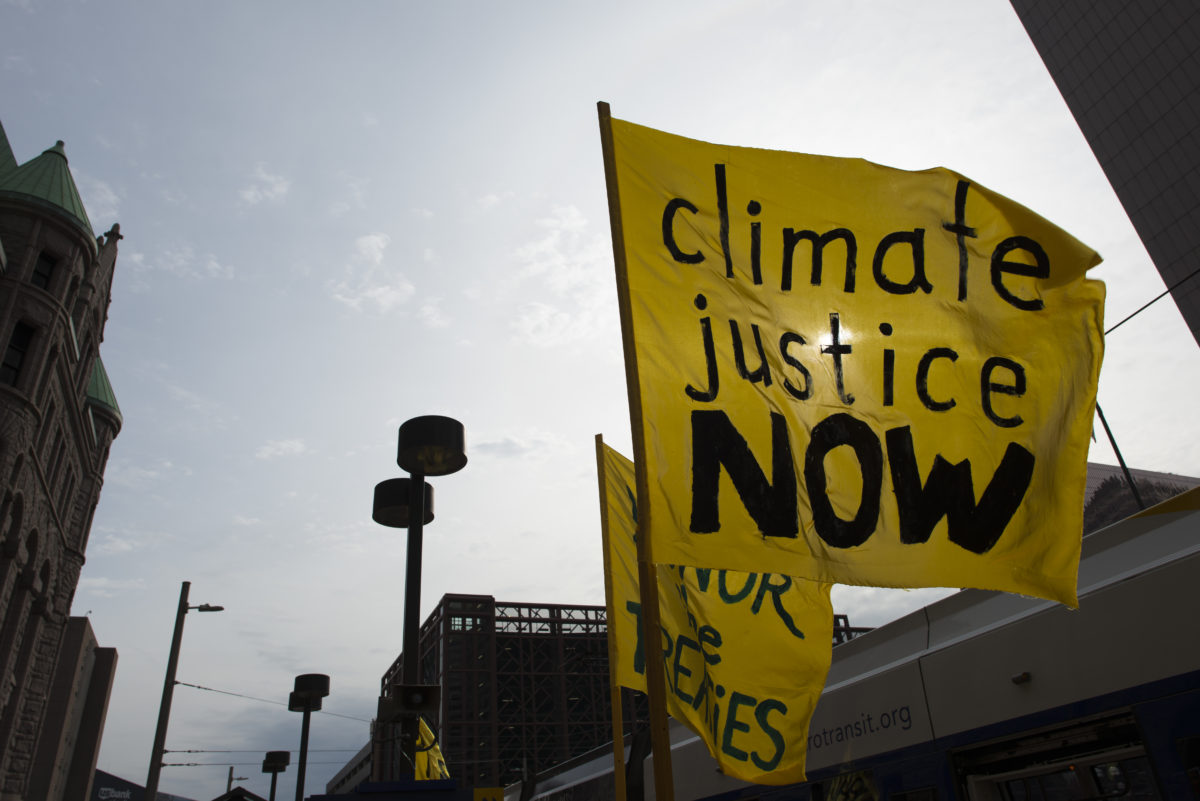International law in an age of catastrophe
Introducing our climate justice symposium
The symposium on climate justice is starting on the blog today, and it appears both a most urgent and a curious moment for it. Last year, the climate crisis finally entered broader public debate. Young people around the globe protesting for much needed climate action succeeded in putting the topic on the agenda, and the attention it received in the media grew exponentially. Earlier this year, when we published our call for contributions, Australia was literally on fire and Indonesia under water. Climate justice concerns many areas of international law and by inviting contributions for this symposium we aimed to push and diversify the debate. Only weeks later, the global attention has shifted to another imminent crisis: the current COVID-19 pandemic that challenges the ways our societies function and interact in unprecedented ways.
Yet attention to the climate crisis cannot be postponed, one crisis cannot be played out against the other. Questions as fundamental as those of climate justice will outlive the current health crisis. Outside the spotlight, different parts of the world are longing for rain after unprecedented warm and dry winters (see here and here). Moreover, the current pandemic and the climate crisis are in some aspects related, and this goes beyond the fact that the next UN climate conference (COP26) set to take place in Glasgow in November has been postponed due to COVID-19. It also goes beyond the risk that finally adopted climate measures might be suspended because of the economic crisis in the shadow of the Corona crisis. The current health crisis has an important environmental dimension. Global warming being a multiplier for developments such as biodiversity loss or extreme weather conditions, the likelihood of imminent crises such as the one we currently witness is growing – with different impacts on different regions and parts of society around the globe.
In moments of crisis, we must seek to understand the underlying systemic questions. Climate change increases existing inequalities and challenges assumptions about what global justice means and requires. As we wrote in our call, as scholars of international law we must ask how law is part of the problem and how it can be part of the solution. With view to tomorrow, we must begin thinking what norms of justice can guide human coexistence on a radically changing common globe.
We were delighted about the response to the call and look forward to publishing a diverse selection of posts in the upcoming days. These span the role of climate litigation, the effects on democratic politics and guiding norms and forms in tackling the crisis. The contributions will question assumption of the current discourse (including those of our call!), explore the potential of citizen assemblies, shed light on climate litigation in the Global South and ask about the role for statehood – to name but a few topics you can expect. As always, we invite you to share your thoughts in comments.
Cite as: Raffaela Kunz, Dana Schmalz & Anna-Julia Saiger, “International law in an age of catastrophe. Introducing our climate justice symposium”, Völkerrechtsblog, 27 April 2020, doi: 10.17176/20200427-164714-0.

Dana Schmalz ist wissenschaftliche Mitarbeiterin am Max-Planck-Institut für ausländisches öffentliches Recht und Völkerrecht in Heidelberg/Berlin und Stipendiatin der Alexander von Humboldt-Stiftung.

Raffaela Kunz ist Postdoktorandin und Dozentin an der Universität Zürich, Schweiz. Sie ist Mitglied des wissenschaftlichen Beirats des Völkerrechtsblogs.

Anna-Julia Saiger (Dr. iur., LL.M.) is a legal trainee at the Higher Regional Court in Karlsruhe. She graduated from King’s College, London, Humboldt University, Berlin, and La Sapienza, Rome, and is currently working as a research assistant at the Institute for Media and Information Law at Albert-Ludwigs University Freiburg i. Br. Her research focuses on climate change and international law. She is an editor at Völkerrechtsblog.

Thank you so much for this symposium. I cannot wait to read the next blog posts.